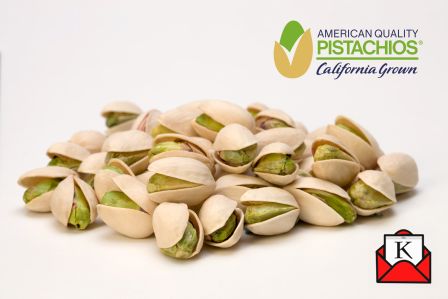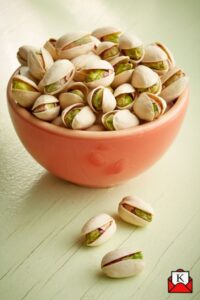New Study Of Cornell University Reveals Pistachios Are An Antioxidant Powerhouse


Antioxidant-rich foods are regularly encouraged as part of a healthy lifestyle, and research suggests that a diet high in antioxidants may even help to reduce the risk of death. While certain fruits and vegetables are often thought of as high-antioxidant foods, a new study conducted by Cornell University and published in the journal, Nutrients, produced surprising results. Pistachios have a very high antioxidant capacity, among the highest when compared to values reported in research on many foods commonly known for their antioxidant capacities, such as blueberries, pomegranates, cherries, and beets.
Researchers from Cornell University revealed the potential mechanism behind the health benefits that have been linked to pistachios in recent studies. They analyzed pistachios to determine:
- The makeup of pistachio phytochemicals – compounds within plants that may help to lower the risk of chronic diseases and keep the body working properly.
- The antioxidant power of pistachios.
- Whether pistachio extracts can help to inhibit the growth of tumor cells (breast, liver, and colon cancer cells) in a laboratory setting.
The researchers used two different methods were used to measure the antioxidant potential of pistachios – Oxygen Radical Absorbance Capacity (ORAC) and Cellular Antioxidant Activity (CAA) – and found that pistachios have a very high level of antioxidant activity.
“We were excited to see that the antioxidant capacity of pistachios measured so high in our study,” said Dr. Rui Hai Liu, Professor of Food Science at Cornell University. He further added, “When compared to values reported in research for other common, high-antioxidant foods using the same methods, we see the antioxidant activity of pistachios is higher than that of foods often thought of as antioxidant powerhouses including blueberries, cherries, and beets. We believe the high antioxidant activity of pistachios may be due to the unique compounds in pistachios including vitamin E, carotenoids, phenolics, and flavonoids. The combination or interaction of these beneficial antioxidants, bioactive compounds, along with other nutrients in pistachios, is likely what contributes to the many health benefits we have seen in pistachio studies from recent years.”
Normal metabolisms of daily life – everything from eating, breathing, and exercising to the toxins we encounter in the environment – can generate free radicals in the body. Free radicals attack healthy body cells and this damage is thought to contribute to inflammation and aging in addition to chronic health conditions, including heart disease and cancer. Health professionals recommend antioxidants from food sources to help protect healthy cells from free radical damage in the body.
Most people know that antioxidants are beneficial to health, but many don’t know exactly how antioxidants work within the body. To see an informational video on antioxidants, go to https://AmericanPistachios.org/.
A summary of additional findings from the study includes:
- Pistachios have a wide variety of important phytochemicals including different members of the vitamin E family (β-tocopherol and γ-tocopherol), carotenoids (lutein, zeaxanthin, and beta-carotene), phenolics and flavonoids.
- Pistachios have high antioxidant activities as measured by both ORAC and CAA. CAA measures antioxidant activity in a cell—how the cells take up or absorb the antioxidants—and is a more physiologically relevant assay and is considered reflective of what may happen in the human body when compared to the chemical antioxidant assays.
- Pistachio phytochemical extracts showed potent antiproliferative activities against human breast, liver, and colon cancer cells in vitro with exceptionally high activity seen against the human breast cancer cells. Pistachio phytochemical extracts were shown to inhibit cancer growth in all three cancer cells (breast, liver, and colon) without causing cytotoxicity to the cells. The researchers report that this area of study is worthy of future research to determine how pistachio extracts are blocking the growth of cancer cells as seen in this new study. Interestingly, population studies show an association between a high frequency of nut consumption and a reduced risk of certain cancers.
“The health benefits of pistachios have been studied over the past 20 years and we are excited to dig further into the specific makeup of pistachios that may be contributing to overall health,” note Amber Wilson, MS, RD, Director of Nutrition Research and Communication for American Pistachio Growers. “The results of this study confirm the high antioxidant potential of pistachios, which is great news for those looking to add more antioxidant whole foods to their diet.”
Pistachios used in the Cornell study were grown in California and have a different nutritional profile than those grown in other countries.
Pistachios grown in the U.S. are also a plant-based source of complete protein. One serving of pistachios (1 oz or 49 kernels) is an excellent source of copper and a good source of protein, fiber, vitamin B6, phosphorus, and thiamin.
For more information about research on the health benefits of pistachios, visit https://americanpistachios.in/nutrition-and-health.
